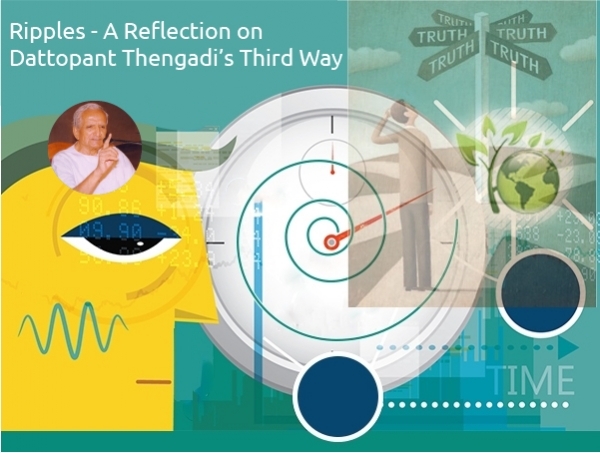Ripples : A Reflection On Dattopant Thengadi's Third Way - Part 9
Dattopant notes that the first book on economics was written in India and the science was defined in India. But our intellectuals hardly acknowledge the existence of such literature in ancient India
Total Views |
I have been reflecting in my own way on Dattopant Thengadi Ji's Third Way. I present these small "ripples" that it has caused in my mind in a series. I am glad it has found its resonance in many thinking minds alike. I hope the readers have read the earlier article in the series before moving ahead.

The next in the collection of articles in the book is 'Quo Vadis' as chapter 3. This is a Latin phrase which means'where are you marching or going' This is the long forward written by shri Dattopant ji to a book by Dr M G Bokare 'Hindu Economics'. It has 8 parts.
The book ( Hindu Economics) presents an argument for an alternate to the present Economics. Dr Bokare was the founding conveynor of Swadeshi Jagaran Manch.
Dattopant notes that the first book on economics was written in India and the science was defined in India. But our intellectuals hardly acknowledge the existence of such literature in ancient India. This is sheer arrogance which is contrary to the scientific approach. So the need to explore and study it was never felt. All the countries that were under British rule had their own socio-economic order evolved in tune with their needs. They depict the collective intelligence of the society.
Part 1
Dattopant gives an example of Vishwakarma sector which is a self employed sector which probably didn't have a mention in western theories. Similarly there is hardly any serious discussion on the treatise by Shukra, Brihaspati and many others. They are mentioned by Kautilya's 'Arthashastra' which by now all are aware of. This literature has systematic analysis and description of various systems of society. The best example is the description of Hindu Guild. Kautilya's writing has all the details of the various points related to it. When the literature is available, it's existence is to be believed, studied and applied if found relevant. It is to be accepted that the Indian society and culture was developed sufficiently. Examples of treatises are given in this part. All Smirtis are not just outdated religious texts. They discuss the various socio-economic and political aspects of the issues. Many practical rules and regulations are prescribed.

